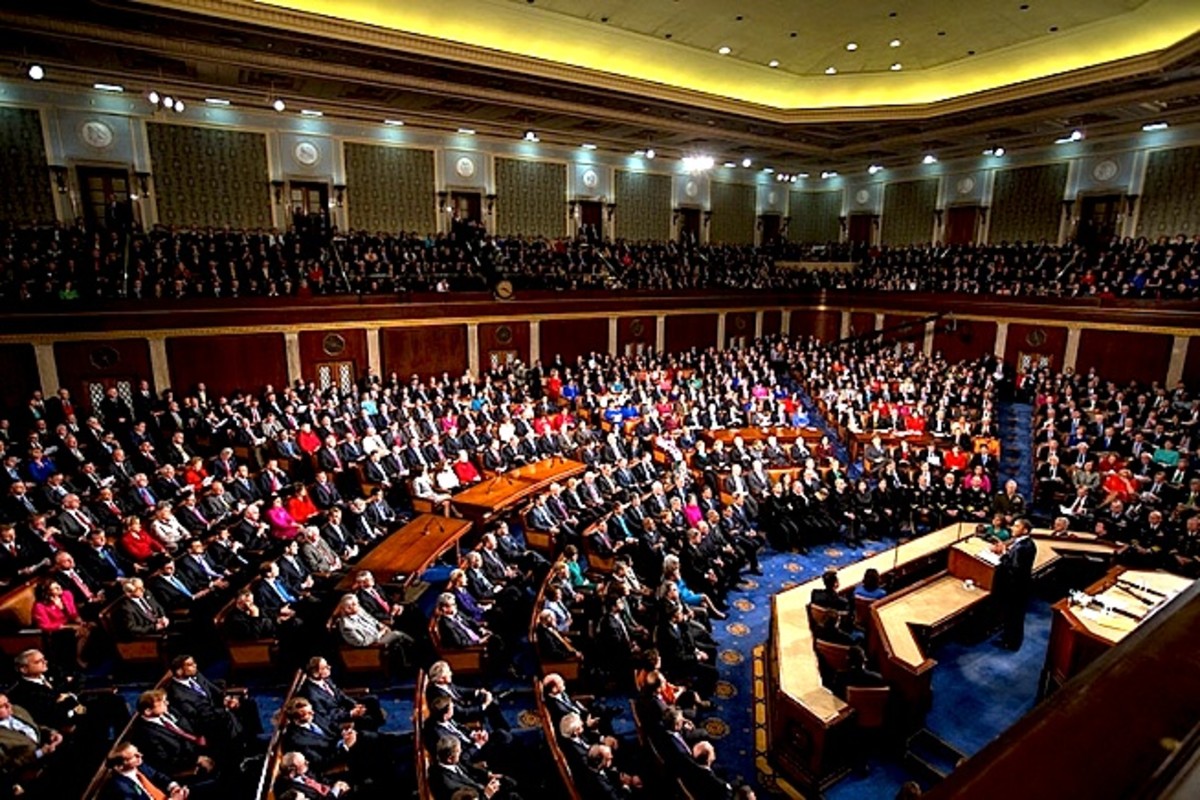The Positives of Sequestration
A Sequester Song (from 50 Billion and the Young Turks)
Crisis -OR- Opportunity?
Never let a good crisis go to waste. Some might say nearly all modern day politicians live to this motto. The belief is that crisis gets treated as opportunity to institute change. Others believe that continual and constant change is better referred to as churn.
There is no law that says we have to look at sequestration as a disaster in the making. We can choose to view it as an opportunity to begin moving towards changes that we have long hoped for. Consider:
- Longer Lines -OR- Less Groping Of Travelers?
- Federal Furloughs –OR- An Experiment in 4-Day Work Weeks?
- Moving Towards ‘Government Employees R.I.P’
- Defense Slashed -OR- Offense Slashed?
- Less Law Enforcement –OR- Who Needs Those Laws Anyway?
- Less Child Care –OR- More Time with Your Children?
Sequestration was in the news a lot in 2013, with a lot of folks testifying before Congress about how badly it would affect the status quo. This article will offer for your consideration some of the potential positive ways of viewing sequestration
Longer Lines -OR- Less Groping Of Travelers?
Transportation Security Administration (TSA) cuts are supposed to mean longer lines at airports. Supposedly the gate checks will take more time, since there will be less workers to process people through the gates. Is that the same processing that some folks have been complaining about? Is the good news side of this that the few workers that remain will have less time to grope grandmothers and children as they try to travel?
How many folks out there remember a time when our taxpayer dollars did not pay for a Department of Homeland Security? Can the Department of Defense and Department of Homeland Security be consolidated? Why do we need two defense departments anyway?
Federal Furloughs -OR- An Experiment in 4-Day Work Weeks?
The news indicated (FOX News, morning of 20 February 2013) that our Department of Defense will soon be notifying 800,000 people that they will be working one less day a week. Workers were asked to reconsider their personal budgets so that they could prepare as best they could for the 20% reduction in income over a half-year period. The economic impact is enormous, but, why are these folks not shouting in joy in the streets? After all, they are getting three-day weekends! Why are these fortunate people not considering themselves to be participants in a pilot experiment to implement a nation-wide four day workweek? Just think, if this proves workable, then the long term benefit is that you too can have a three-day weekend, every weekend, and can look forward to those Holiday weekends when you get four days off.
Moving Towards ‘Government Employees R.I.P’
Please do not read that subtitle wrong, the government is not going to collapse, and it does not seem likely that government employees will be dying at the thought of sequestration. One consequence of the poor economy, shorter work weeks, and less pay is that government workers will not be able to use their income to build up their retirement nest eggs. This potentially eliminates the allure and perhaps even the possibility of retirement while working for the government. Our government workers will work longer (if you can call four day work weeks working), and consequently may never be able afford retirement. The older workers will effectively "Retire in Place", or "R.I.P" for short. That is ok; some of them do not know how to work a real job anyway. Of course this also means that they cannot get rich while working for the government, but that is ok too, since obviously they seek to serve instead of getting rich.
That is why it is called "government service". If they want to get rich or be in charge, they should run for Congress.
Defense Slashed -OR- Offense Slashed?
Defense is slashed, what's the problem? Get real, shall we? Everybody knows defense does not really mean defense, it means offense. Cuts in defense really means less ability to start fights with other nations. It means less ability to use drones to attack other countries people. Not attacking folks means we’ll have more friends. As other countries come to realize that we really are their friends, they will come visit, and stay a while, and our corresponding cuts in law enforcement will help out with that. They will stay healthy and well, we will pay for that with our generous redistribution of tax dollars.
Sequester Visitors?

Less Law Enforcement -OR- Who Needs Those Laws Anyway?
Reports from February 2013 were indicating the dire consequences of fewer FBI, fewer Customs agents, fewer prosecutors, and fewer corrections officers. In other words, the government will cut back on employing people to stifle undesirable additions to our citizenry, and we will eventually evolve into a more diverse cross-section of our world society. Supporting fewer law enforcement people also means the money can be moved to medical and educational support for those who cannot get that sort of support in other countries. Our country will grow! Millions of people will benefit, instead of just the few at the top that are working to keep those benefits to themselves.
Another positive aspect to less law enforcement is that the people will be elevated to the same level as our Congressional people. Why try to make the people obey the laws Congress makes when Congress will not obey their own laws? Is it not preferable that all the rest of us can ignore the laws also? Will life be easier if there is less law enforcement? Besides, there are way too many laws anyway, they change so often nobody can hope to keep up, and many of them conflict with each other. Nobody can possibly hope to know all the laws, much less try to obey them all. By reducing law enforcement are we really saying that we recognize this has become too much?
Of course, the latest example of laws that Congress does not follow is the sequestration law that is the subject of this article. They all have been saying they passed this law hoping that it would never happen. Yup, yup, just another example of ‘we make the laws, but we don’t really mean it’. Congress has not fooled anybody with this one, the people know already that the laws they make are not intended for Congress, they are intended for us lesser folk. One Congress-person has even gone so far as to say that only Congress deserves a raise, the rest of the government can do without. It reminds me of the old quote from Animal Farm: "All animals are created equal, but some are more equal than others".
The serious questions are:
- Why have law enforcement if Congress keeps on writing laws that they intend from the start to have no meaning?
- Why have law enforcement if Congress keeps on changing the laws so fast that nobody can keep up?
- How do you enforce laws that are constantly changing?
- At some point, will this become a system where we are punished at the arbitrary will of our leaders?
Less Child Care -OR- More Time With Your Children?
How is less child care a bad thing? Is the concept of "family" not highly valued here in the States? Will less child care not encourage more people to stay at home and spend quality time with their children? Will less child-care not mean that we have less chance of exposing our children to those who seek out employment at child care centers solely for the purpose of gaining access to our children for less than honorable purposes? Is Congress in fact encouraging the family value by providing their federal employees with the opportunity to spend an extra day at home with their children?

What Fiscal Cliff?
With all these good things happening as consequences, how can anyone complain about sequestration?








